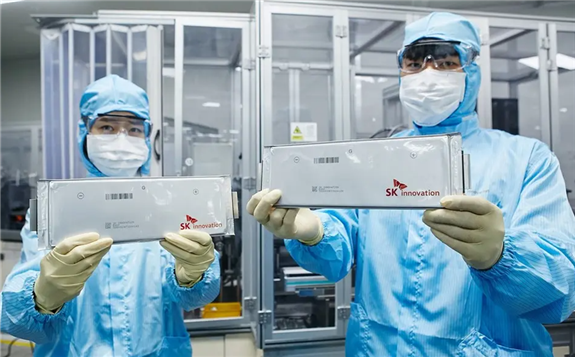The great battery dust-up is over. With just hours left before the Biden administration had to approve or overrule the US International Trade Commission ruling that would have barred SK Innovation from building batteries in the United States for 10 years — albeit, with limited exceptions designed to placate Ford and Volkswagen — LG Energy Solution and SK Innovation agreed to settle their differences. There were huge sighs of relief from all concerned, including both senators from Georgia, Governor Brian Kemp, the new US trade representative, Volkswagen, Ford, more than a few officials in the Biden administration, and many others on the ground in Georgia and South Korea.

The best compromise is the one in which no one is completely happy, so they say. In this case, LG Energy had loudly demanded a public admission from SKI that it purloined proprietary information when it hired 40 top engineers away two years ago. It wanted SKI to apologize for its bad behavior, something SKI said it would never, ever do even if burning splints were placed under the fingernails of its top executives. LG Energy wanted more than $5 billion in damages. In the end, it agreed to accept $1.8 billion with part paid in cash now and the rest paid in the form of royalty payments over the next several years.
An SKI official said after the settlement was reached, “We expect our payment plan will not be financially burdensome.” That should tell you something about how much money the company expects to make by manufacturing batteries in the US and elsewhere. As part of the agreement, both companies agreed to drop all litigation in the United States and South Korea and not to raise further lawsuits against each other for a period of 10 years. “The two companies now can coexist in the global market and compete in good faith,” LG Energy Solution said in a statement. SKI said it would invest actively both in South Korea and abroad now that uncertainties for its EV battery business in the United States have been cleared up.
U.S. Trade Representative Katherine Tai said in a statement Sunday the deal left the United States in “a stronger position to drive innovation and growth of clean energy technology envisioned in the American Jobs Plan while also respecting the rights of technology innovators at the heart of trade and manufacturing policy,”
Scott Keogh, chief executive of the Volkswagen Group of America, also applauded the outcome. “With the intellectual property issues between the two companies now settled, our complete focus now shifts to where it should be: the start of U.S. production of the all-electric ID.4 SUV in 2022, assembled by proud, skilled workers in Tennessee.”
SK Innovation had threatened to suspend work on its new $2.6 billion battery factory located in Commerce, Georgia, located about 70 miles northeast of Atlanta. That factory is expected to employ 1,000 workers by the end of this year and more than 2,600 when fully operational in a few years. Batteries made there are destined to be used in Volkswagens produced in Chattanooga, Tennessee, and in the upcoming electric version of the Ford F-150. The state of Georgia has agreed to provide up to $300 million in economic assistance to get the factory in Commerce into operation.
The peace settlement takes the Biden administration off the hook and allows it to avoid overturning the ITC ruling, something that is done only rarely. Nevertheless, the administration apparently had sent signals to LG Energy indicating it was prepared to do precisely that if the two sides could not resolve their differences. We noted in a story last week that there would likely be some high-level arm twisting going on in Washington, DC, this weekend, and apparently we were right.
LG Energy Solution may be on the hook for a portion of the nearly $1 billion it will cost Hyundai to replace batteries supplied by LG that have been involved in fires in several Hyundai models. So LG will send some money to Hyundai and get some money from SKI. Everything will even out in the end and the EV revolution will move forward toward a brighter — and highly profitable — future. All’s well that ends well, we suppose. From our perspective, anything that accelerates the electric car future is welcome news indeed.